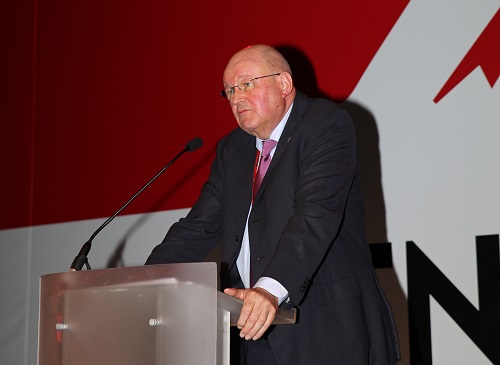At the FIDI conference in Geneva, Jean Francois Bellis from law firm Van Bael and Bellis, presented a clear and concise description of the sanctions that companies might face if they are convicted of anti-competitive conduct.

Such conduct could be something as simple as providing a cover quote or engaging in an inappropriate private conversation. It was shocking for some and a loud wake-up call to everyone to take care in their daily dealings to ensure that they do not take part in cartel activity.
Mr Bellis said that the antitrust authorities have the right to enter your offices, even if you are not there, to seize computers and even private papers, if they have reason to believe that you have infringed competition law. They can also enter your private home. If found guilty, high fines can be imposed of up to 10% of a company’s worldwide turnover, jail terms might be imposed, and there might be subsequent claims for damages from injured parties.
Mr Bellis said that the EU is a world leader in imposing high fines but the practice is spreading around the world. ”Over the last ten years more than 100 countries have adopted or amended their antitrust legislation to conform to the EU model,” he explained. What’s more, all those competition authorities talk to each other and compare their enforcement activities and results.
Once the competition authorities have judged against a company it can then spark more actions for damages brought by specialised law firms or private companies that invest in litigation. “These ‘vultures’ come after the competition authorities to collect whatever they can from the pockets of the companies found guilty,” he said. “They buy claims of potential victims and bring the claims on their behalf then keep a percentage of what they recover.”
The law requires companies to decide on their prices and on their choice of customer, independently without any agreement or discussion with a competitor. There isn’t even any need for companies to agree: it is a breach of the law for competitors even to discuss matters such as pricing, market sharing, an agreement not to poach business, bid rigging, the provision of cover quotes, market trends or the exchange of competitive information. Even a single ‘confidential’ conversation can be against the law and action can be taken if it can be proved to have taken place.
There have been many examples in the removals industry in recent years: in 2008 an investigation in Belgium imposed fines of €32m on removal companies; another case in which EU officials asked for the provision of cover quotes created further prosecutions; in 2007 fines of €2m were imposed on movers; in 2014 three Swedish removal companies were fined for agreeing not to compete with each other; and there is still an ongoing case in the US.
Leniency
The situation has been made more dangerous for companies since the introduction of the leniency programme which gives an incentive to people to report anti-competitive practices to obtain immunity. The leniency programme is operated by every competition authority. “If you are the first to denounce cartel activity to the authority normally you will get full immunity,” said Mr Bellis.
In the US only the first company to denounce the cartel gains immunity with all other participants facing the full fine. In the EU the first whistle-blower gains full immunity with followers receiving a diminishing discount. This can create a race to declare a cartel to the authorities, with some companies even acting tactically with the ring leader being the first to declare thereby receiving immunity and putting competitors in an unenviable position.
How to avoid problems
One way of reducing the likelihood of employees engaging in anti-competitive practices is to remove large bonuses from the remuneration package. Employees who are paid bonuses can develop a ‘win at all cost’ attitude, take bonuses and, by the time action is brought against the company, they are working elsewhere.
Compliance training with strong management support can also help. It is possible that fines would be reduced if the authority can see that the company has a robust training programme in place.
The only way to avoid the problem is to ensure that no representative of the company engages in anti-competitive practices. However, with the law so stringent, and many conversations taking place apparently in private and with no resulting agreement or in plenary meetings at industry conferences, it is very easy to fall foul of the regulations, even inadvertently. Companies should exercise caution at all times.
www.vanbaelbellis.com FIDI Conference part 1 – FIDI in Geneva
FIDI Conference part 2 - A label not a logo
FIDI Conference part 4 - SOLAS panel